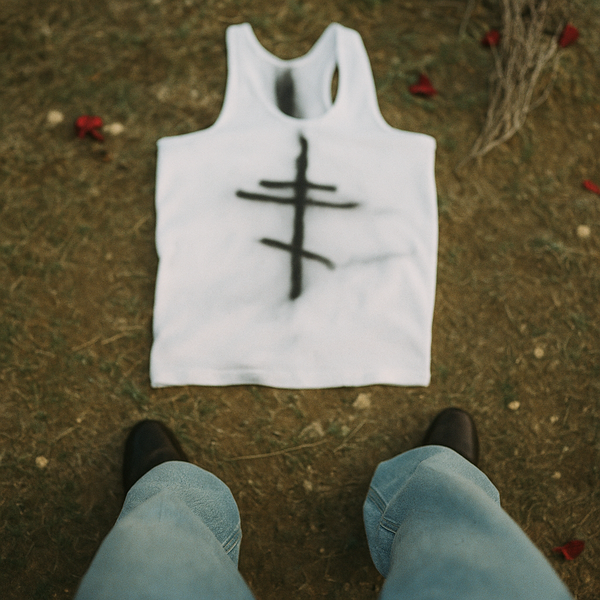Breaking into Heavy Metal's Mainstream: Sabaton's American Journey

The American music market is a meat grinder that chews up foreign bands and spits out their bones. Ask any European metal act trying to crack the States, and they'll tell you horror stories about empty venues in Omaha, promoters who vanish with the door money, and radio programmers who can't pronounce their names. Yet here comes Sabaton, those Swedish war historians in combat boots, announcing a 2026 North American headline tour like they own the place. Meanwhile, their countrymen in Orbit Culture just signed to Century Media Records with all the fanfare of a Tuesday night open mic at a sports bar.
The contrast tells you everything you need to know about what it takes for non-American metal bands to break through in a market that treats anything without an American zip code like it might be carrying cultural smallpox.
The Swedish Invasion Nobody Saw Coming
Sabaton didn't storm American beaches—they snuck in through the history classroom. While every other European power metal band was singing about dragons and wizards, these Swedes were belting out songs about the Battle of Thermopylae and the Warsaw Uprising. Their 2025 album Legends continues this formula, because why mess with what works? They found their niche: metalheads who also happen to be World War II documentary addicts. It's brilliant, really. They're not competing with Metallica; they're the only game in town for people who want their double bass drums served with a side of military history.
The band formed in 1999 in Falun, Sweden, a town whose main claim to fame is a giant hole in the ground where they used to mine copper. Twenty-five years later, they're plotting their next album while booking North American tours two years in advance. That's not luck—that's strategy. They built their American audience one history nerd at a time, touring relentlessly through venues that most European bands wouldn't touch with a ten-foot mic stand. They played the long game while others were looking for shortcuts.
Here's what Sabaton understood that most foreign bands don't: Americans don't care about your European festival headlines or your gold records in Germany. They care about whether you showed up in their town, played your ass off, and stuck around to sign autographs afterward. Sabaton did that. For years. In places like Des Moines and Tucson and Jacksonville.
The Other Swedish Story
Now pivot to Orbit Culture, another Swedish metal outfit that just inked a deal with Century Media Records. The press releases are flying, the metal blogs are posting, and approximately seventeen people in America have noticed. Don't get me wrong—Century Media is a solid label, and Orbit Culture makes the kind of melodic death metal that should, in a just world, pack venues from coast to coast. But this is America, where justice takes a backseat to market dynamics.
Orbit Culture formed in 2013 in Eksjö, Sweden, a town that makes Sabaton's Falun look like Stockholm. They've been grinding for a decade, putting out albums like Nija and Shaman, building a following in Europe that any American band would kill for. The Century Media signing should be their breakthrough moment. Instead, it's another drop in an ocean of metal bands all fighting for the same slice of American attention.
The difference between Orbit Culture and Sabaton isn't talent—both bands can play circles around most of what passes for metal on American rock radio. The difference is that Sabaton found a way to make themselves essential to a specific American audience, while Orbit Culture is still trying to convince Americans they exist.
The Brutal Mathematics of Breaking America
Here's the dirty secret about the American music market: it's not actually one market. It's fifty different markets wearing a trench coat and pretending to be unified. What kills in Portland gets you bottled in Dallas. The venue that loves you in Philadelphia won't book you in Pittsburgh, ninety minutes away. And that's before you factor in the visa costs, the equipment rentals, the van that breaks down in Nebraska where the nearest music store is three hours away.
For non-American bands, the math gets even uglier. You're converting euros or kronor to dollars, usually at a loss. You're paying for work visas that cost more than most American bands make in a month. You're trying to build a fanbase across a country that's forty times the size of your homeland, where driving between gigs can take longer than flying across Europe.
Sabaton cracked the code by becoming more than just another metal band. They became educators, historians, storytellers. Their fans don't just come for the music—they come for the experience of hearing "Ghost Division" while knowing exactly what Rommel's 7th Panzer Division did in France. It's metal as edutainment, and it works because it gives American audiences something they can't get from domestic bands.
The Long Road to Recognition
The implications for non-American artists are both inspiring and depressing. Yes, you can break through in America, but you better have a strategy that goes beyond "we're really good at our instruments." You need an angle, a hook, something that makes you indispensable to American audiences who have more entertainment options than they have hours in the day.
You need to tour relentlessly in markets that barely register on the music industry radar. You need to build relationships with fans one handshake at a time. You need to accept that your European success means exactly nothing to a kid in Ohio who's never heard of the festivals you've headlined.
Most importantly, you need patience. Sabaton's been at this for a quarter-century. Their 2026 North American tour isn't the beginning of their American journey—it's the payoff for decades of groundwork. They played dive bars before they played theaters. They signed CDs in parking lots before they signed record deals worth mentioning.
The American market doesn't care where you're from, but it also doesn't make exceptions for where you're from. You want in? You better be ready to bleed for it. Sabaton bled for it and now they're reaping the rewards. Orbit Culture's just starting to bleed, and only time will tell if they've got enough blood to spare.
That's the brutal truth about breaking into America's mainstream as a foreign metal band: success isn't measured in albums sold or streams counted. It's measured in miles driven, hands shaken, and years invested. Sabaton figured that out. The question is whether the next generation of international metal bands will learn from their example or die trying to find a shortcut that doesn't exist.
References
- https://en.wikipedia.org/wiki/Orbit_Culture
- https://www.thisdayinmetal.com/sabaton-announce-2026-north-american-headline-tour
- https://en.wikipedia.org/wiki/Legends_%28Sabaton_album%29
- https://www.metalrosemedia.com/post/orbit-culture-sign-to-century-media-records
- https://killthemusic.net/blog/orbit-culture-sign-with-century-media
- https://en.wikipedia.org/wiki/Sabaton_%28band%29
- https://metalinjection.net/news/sabaton-is-plotting-a-new-album
- https://chaoszine.net/orbit-culture-lands-new-home-from-century-media-records
Models used: claude-opus-4-1-20250805, gpt-image-1




